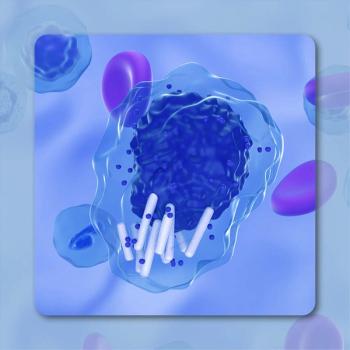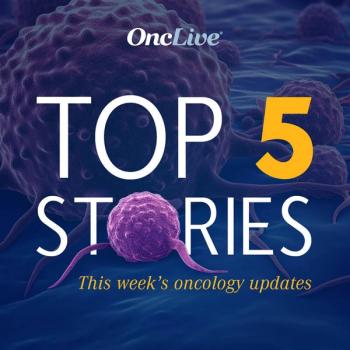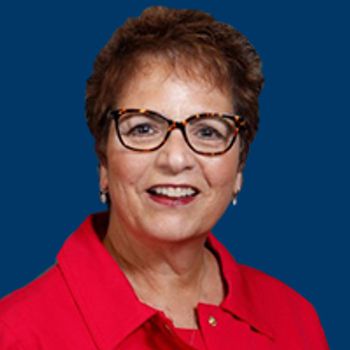
Global Study Estimates Widespread Impact of COVID-19 on Cancer Care and Potential Harm to Patients
The coronavirus disease 2019 has had a significant impact on cancer care and created widespread challenges for health care systems across the globe.
The
According to the results, 88.2% of 356 participating centers across the world reported facing significant challenges as a result of the pandemic, including reduced services and potentially exposing patients to harm.
“The COVID-19 pandemic has impacted the health care system globally with interruption of usual care in many health care facilities and exposed our cancer patients, who are a vulnerable population, to significant risk and harm,” said Abdul Rahman Jazieh, MD, MPH, chairman of the Department of Oncology at King Abdulaziz Medical City in Riyadh, Saudi Arabia, in a virtual press conference. “Our study aimed to evaluate the impact of the pandemic in cancer care worldwide.”
A total of 54 countries spanning 6 continents participated in the questionnaire-based study between April 21 and May 8, 2020.
Of the participating centers, 16.01% were in Africa, 21.62% were in Asia, 5.34% were in Australia, 41.01% were in Europe, 5.61% were in North America, and 10.39% were in South America. Moreover, 72.47% of centers were stand-alone centers, and the remainder were part of a larger organization.
Additionally, 37.64% were governmental health care organizations, 25.56% were private, 30.90% were academic, and 1.69% were military. The majority of centers (97.19%) offered systemic cancer therapy, 21.07% offered cancer surgery, 67.42% offered radiation therapy, 41.29% offered stem cell transplant, and 86.24% offered palliative care.
In total, the participating centers served 716,979 new patients with cancer per year, with the majority (47.31%) serving under 1,000 new patients per year. About 4% of centers served over 10,000 new patients per year.
The 51-item validated electronic questionnaire was distributed via SurveyMonkey©.
The questionnaire assessed potentially the ways in which the COVID-19 pandemic has impacted the field of oncology, including center capacity/services, the magnitude and reasons of patient care interruption, challenges faced by health care professionals, interventions implemented by centers, and the estimated level of patient harm during the pandemic.
Regarding the challenge of reduced services as a result of the COVID-19 pandemic, 55.34% of centers reported that services were reduced preemptively. Additionally, centers reported that services were reduced due to an overwhelmed health care system (19.94%), lack of personal protective equipment (PPE; 19.10%), staff shortage (17.98%), and restricted access to medications (9.83%).
Notably, 46.31% of centers reported that more than 10% of their patients missed at least 1 cycle of therapy.
Moreover, 36.52% of centers reported that patients were exposed to harm due to interruption of cancer-specific care, and 39.04% indicated that patients were exposed to harm due to decreased non-cancer related care.
“We tend to forget that our patients with cancer also have other medical problems,” said Jazieh. “They have hypertension, diabetes, heart disease, chronic obstructive pulmonary disease, and so on. [Those conditions] require care. We brag in many institutions that dialysis, [for example], continued [during the COVID-19 pandemic], but think of all the other services our patients needed.”
According to the study, some centers estimated that up to 80% of their patients were exposed to harm as a result of the COVID-19 pandemic’s impact on the center’s health care system.
Of participating centers, 28.65% remained fully open during the pandemic, 62.64% remained open with reduced workload, 6.74% partially closed, and 1.97% closed completely. The majority of centers (73.31%) reported that they had access to the same baseline medications, whereas 19.10% said they had no access to few medications, 7.30% said they had no access to many medications, and 0.28% said they had no access to any medications.
Over half of centers (51.68%) reported no shortage of PPE, whereas others reported shortages of N95 masks (48.31%), surgical masks (29.21%), gloves (18.26%), goggles (19.94%), and gowns (18.45%).
Just under half of centers (48.03%) reported COVID-19 diagnoses among inpatients with cancer, 46.35% reported COVID-19 diagnoses among outpatients with cancer, and 44.38% reported diagnoses of staff members infected with COVID-19.
The majority of centers (77.53%) reported that they launched virtual tumor boards, and 60.39% indicated that the virtual tumor boards are likely to persist after the COVID-19 pandemic.
Regarding the outpatient setting, 7.58% of centers reported an all virtual outpatient clinic, 71.35% reported a virtual and physical hybrid, 17.13% reported an all physical outpatient clinic, and 3.93% reported that all outpatient clinics were cancelled. Moreover, 55.9% predicted that the virtual clinic will continue after the COVID-19 pandemic.
Finally, 76.12% of centers stated that they are performing laboratory tests near patients’ homes, and 68.26% reported that they are delivering medications to patient’s homes.
“The detrimental impact of the COVID-19 pandemic is widespread with varying magnitude among centers worldwide. There is a new normal of cancer care that has emerged with emphasis on telehealth and care that is delivered closer to home.”
According to Jazieh, additional research is needed to assess the impact of the COVID-19 pandemic at the individual patient level. The full study is set to be published later in 2020 in JCO Global Oncology.
Reference
Jazieh AR, Akbulut H, Curigliano G, et al. The impact of COVID-19 pandemic on cancer care: a global collaborative study. Presented at: 2020 ESMO Virtual Congress Opening Press Conference. September 10, 2020. Abstract 1613P.




































